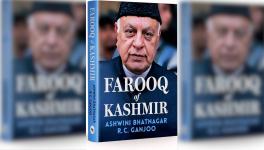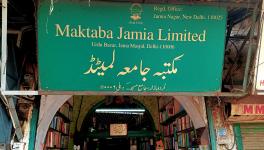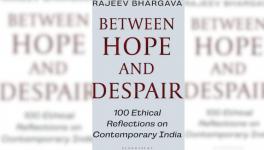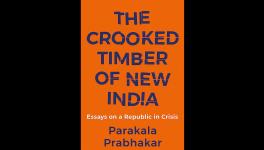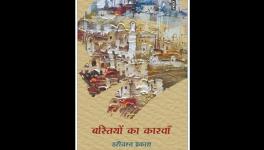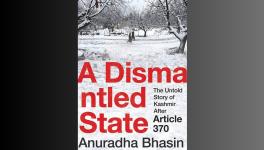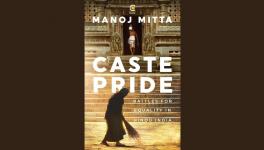Internet, Economic Crisis Hurt Reading, but Book Lovers Endure
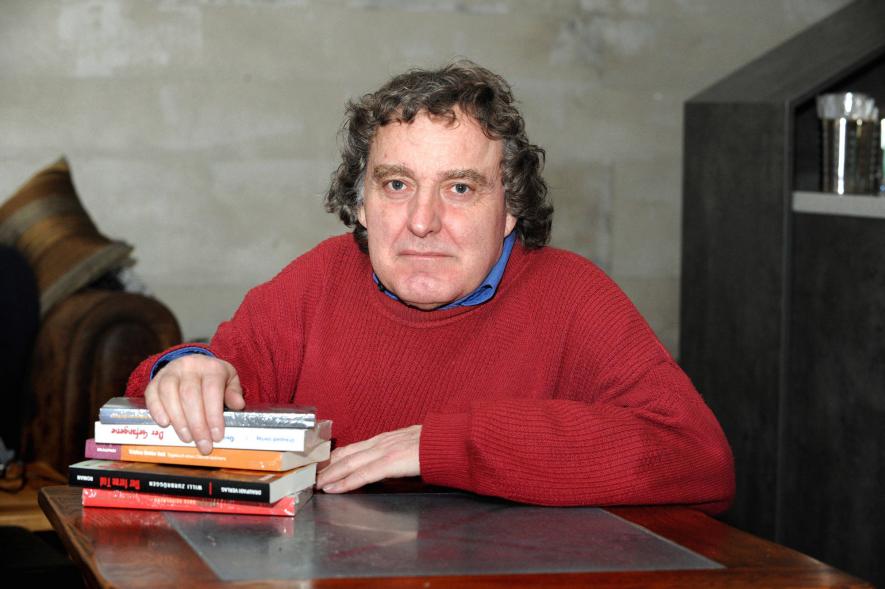
Christian Weiss has created a niche publishing house titled Draupadi Verlag, which specialises in translating Hindi and other regional Indian literature into the German language. This one-man effort has published 180 books by Indian writers and is among the most sought after publishing houses among subcontinental writers who want a wider footprint of readership. In 2007, Weiss was awarded the Gisela Bonn Prize of the Deutsch-Indische Gesellschaft, in collaboration with the Indian Council of Cultural Affairs. In 2016, he was awarded the Bundesverdienstkreuz, the equivalent of the Padma Shri, and in 2020, Draupadi Verlag was among small publishing houses to win the German Publishers’ Prize. Edited excerpts from an interview with Weiss, conducted by Rashme Sehgal:
Rashme Sehgal: What made you interested in publishing literature from the Indian subcontinent?
Christian Weiss: In 1983, I visited India, more specifically West Bengal, where I was exposed to Indian literature. I was fascinated by the depth and range of Indian literature and philosophy and on my return to Heidelberg, I signed up for Bengali classes at the South Asian Institute in Heidelberg. My teacher there was Alokeranjan Dasgupta, a poet and writer who was well known in Bengal and used to contribute regularly to the Bengali magazine, Desh.
After I gained some proficiency in Bengali, I began translating Bengali literature to German but found it was difficult to find a publisher. And so in 2003, I decided to start my own publishing house to publish these books. I decided to call it Draupadi Verlag (publishing house) after the courageous protagonist of the Indian epic Mahabharata. But I think that starting my own publishing house was a good decision.
RS: Why do you say that?
CW: I received a great deal of support from different people and have so far succeeded in publishing 180 books. It turned out to be far more successful than I had expected. German readers are exposed to well-known Indian [origin] writers such as Salman Rushdie and Vikram Seth but I chose to focus on writers writing in all the major Indian languages. Not only did we translate great writers such as Tagore, Mahasweta Devi and Nirmal Verma, we have also translated works of a younger generation of writers including Sara Rai, Geetanjali Shree, Tamil writers including Thoppil Mohamed Meeran and Perumal Murugan and the Malayalam poet K Satchidanandan. We have recently translated a book in Hindi by the author Anjali Deshpande.
RS: What is the average print run of your books?
CW: The print run is not every high. Only a few hundred. But sometimes I have to reprint and reprint and reprint.
RS: Do most of your titles go into reprint?
CW: Many have. Two authors, Geetanjali Shree and Uday Prakash (Hindi writers) have done well. They have visited Germany for reading programs. In fact Uday Prakash has visited Heidelberg at least seven or eight times, having been invited to the Heidelberg Literature Festival. Geetanjali Shree has also done several readings in Heidelberg. These authors are invited by the South Asia Institute which has the funds to invite authors.
I had published Geetanjali Shree way back in 2010. The first title I published of her work was Mai (Mother). It was her first novel and nobody knew her then. Today, she has become an international star.
RS: What is your business model or do you publish a book because it has had an emotional impact on you?
CW: Every book is a big adventure. The biggest problem is to raise money to publish these books. Fortunately, the German government has been supportive in my endeavour, as has the Indian government. The Indian Embassy in Berlin has also supported the publication of four books. In Frankfurt, an organisation called Association for Promoting Literature from Africa, Asia and Latin America, and the Literary Forum in India, have also proved very supportive.
RS: How do you go about promoting the books you have published?
CW: I have found that the best way to promote books is to organise readings. I personally introduce each book I have published. I often end up doing the readings myself, too. In Heidelberg, people are very open to reading literature from around the world and that is good. After a reading, members of the audience always end up buying a few books.
International literary festivals also attract authors and audiences. Book readings held in these festivals are well received and I hope it continues this way. Awards have [also] brought me additional publicity and helped increase the sale of our books.
RS: What is the contemporary publishing scene like in Germany? Publishing creative literature in India is facing many problems.
CW: Contemporary German publishing is in the throes of a major crisis. The reasons for this are well known. People are spending much more time on social media and internet. Younger people are also buying less books. Most of my books are being bought by people between the ages of 50 to 80. Another problem is the worldwide economic crisis has seen food and energy prices shoot up and, sadly, books have become a casualty. But I remain optimistic. There will always be people who love books and will continue to buy them.
RS: How many copies of your books do you sell?
CW: Regarding books of poetry, it is difficult to sell more than 100 copies. Of some novels, more than 1000 copies could be sold.
RS: I understand you have branched into publishing books from other countries in the subcontinent?
CW: Yes, I am now publishing books from Sri Lanka, Nepal, Bangldesh and Pakistan. Draupadi Verlag now covers an entire gamut of literature from these countries.
RS: Can you say you have created an important niche in the German book market for your publishing house?
CW: If one goes to a book shop, you will find the books of bestselling authors will be available and well displayed. But books by authors in Telugu, Marathi and Tamil will not be found on book shelves. To introduce a new name in the market is very difficult. This is a problem authors face across all countries. Some authors are controversial and so they receive media space which helps them pick up an audience.
Here in Germany, we have some institutions which are very helpful. We have a public radio service and every month they publish a list of the best books. The audience hears the discussion around a particular book and on hearing the discussion, will go to the book shop and buy that book.
RS: You are fluent in Hindi but how do you go about publishing books in other Indian regional languages?
CW: I have an excellent team of committed translators. Many of them have been teaching at the South Asia Institute in Heidelberg. They are on the lookout for new writers and publications. They do the research on authors. I rely on the personal contacts my translators have established with the authors. They act as my scouts. I like to promote by authors to the best of my ability. I have to keep applying for funding and that allows me to occasionally invite an author to Germany as I did with Baby Halder, whose life as a domestic worker has sold 2,500 copies in German. The expenses for her book tour of Germany were paid for by the human rights organisation Heinrich Boll Stiftung.
Rashme Sehgal is an independent journalist.
Get the latest reports & analysis with people's perspective on Protests, movements & deep analytical videos, discussions of the current affairs in your Telegram app. Subscribe to NewsClick's Telegram channel & get Real-Time updates on stories, as they get published on our website.









